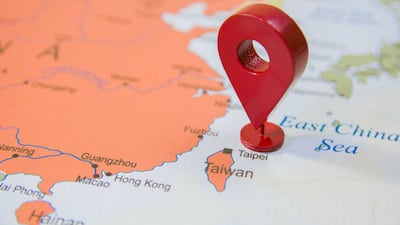Taiwan
Country
Generics Bulletin reviews global regulatory developments across the world.
Generics Bulletin reviews global regulatory developments across the world.
Cipla has bolstered its ophthalmology portfolio and increased its global offering after chalking up an agreement to add Formosa Pharmaceuticals’ USFDA-approved clobetasol propionate 0.05% ophthalmic suspension.
Having secured approvals for the Eylea biosimilar in major markets such as the US and Europe, Formycon has signed a fresh licensing deal with Lotus Pharmaceutical, giving away rights to the asset in the APAC region.
Acepodia’s dual-payload antibody-drug conjugates can link multiple tumor-killing agents without antibody modification. Apart from a GPC3-targeting candidate, the Taiwan-US biotech is also working on a bispecific antibody ADC with two different payloads, its CEO tells Scrip in an interview.
Lotus will look forward to adding ophthalmic and respiratory products to its growing portfolio after striking a deal to swallow up Teva’s operations in Thailand.
Biomedicine is a priority sector for Taiwan. The government has goals to establish Taiwan as the capital of biomedical research and development in the Asia-Pacific region. The country is striving to develop 20 new medicines, bring 80 high-value medical devices to market, and build biomedicine into a trillion-NT-dollar industry by 2025. Tax incentives and other credits will help expand the scale of the biotech and pharmaceutical industry.
A recent survey showed healthcare as among the sectors US companies were most concerned about amid the ongoing China-US tensions over Taiwan. But how do biotech firms on the island itself view the current situation? We spoke to the president of one amid Taiwan’s imminent reopening.
A recent survey showed healthcare as the sector US public companies were most concerned about (after semiconductors) amid the ongoing China-US tensions over Taiwan. But how do biotech firms in Taiwan itself view the current situation? Scrip spoke to the president of one of the most innovative and active companies in the sector, amid the island’s imminent reopening to the world after over two long years under pandemic restrictions.
Bora Pharmaceuticals says it has become “the largest pharmaceutical group by volume in Taiwan” after acquiring TWi Pharmaceuticals.
Amid simmering regional geopolitical tensions, speakers at a recent conference highlighted the multiple benefits of conducting clinical trials in Taiwan, while pointing to what more could be done to improve the local ecosystem.
Compassionate use programs (CUP) are a developing field in Asian countries. In the majority of Asian states, the CU applies to Named-Patients Program (NPP). In the most countries, understanding of CUP for unapproved drugs is poor among the public, and even for professional communities.










